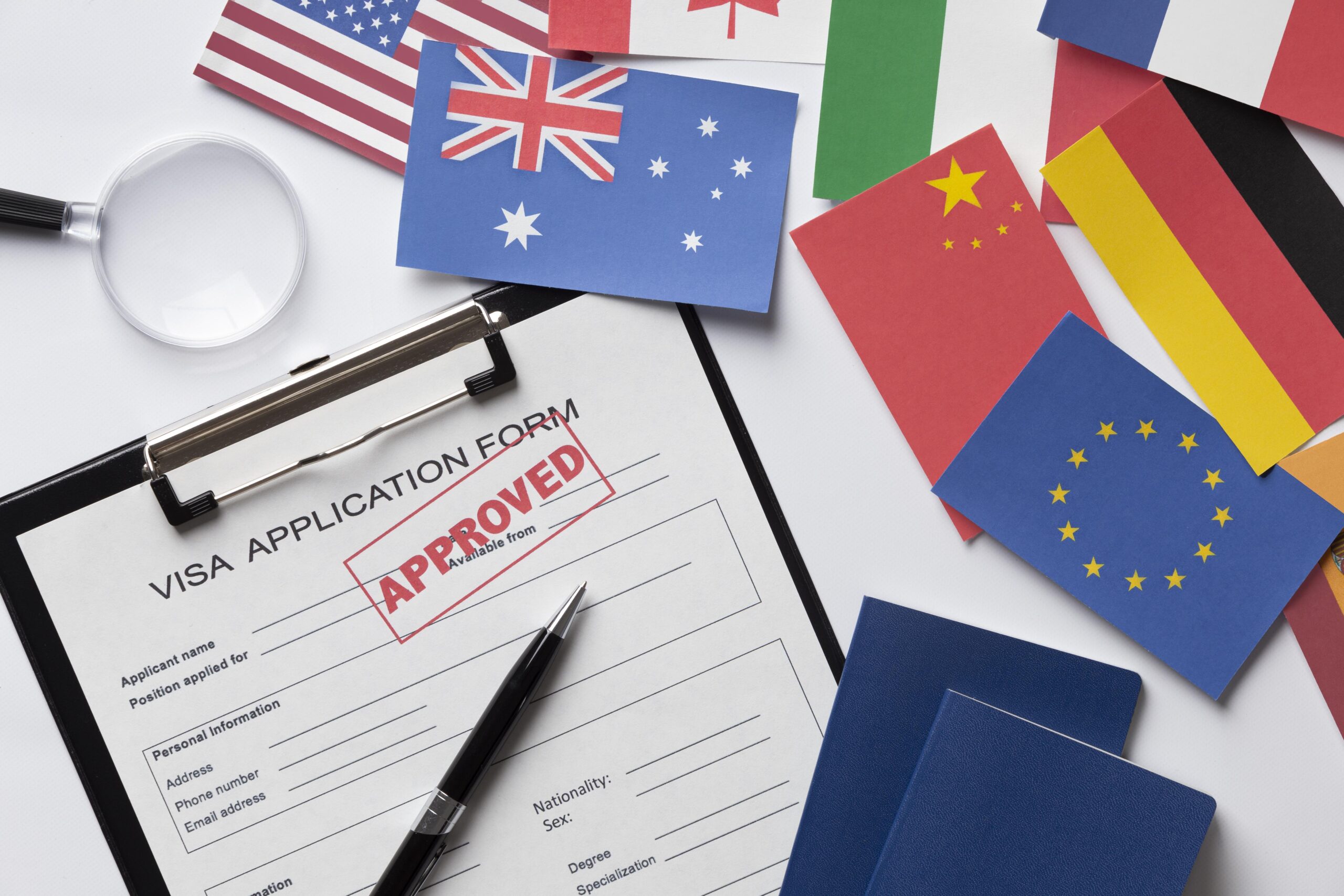Malta has changed its approach to migration. Malta's Minister of Finance and Employment, Clyde Caruana, who was the head of JobsPlus, the agency responsible for employment on the island, has been announcing fundamental changes to Malta's migration policy since January 2021, as Boom Studies announced at the time. 1
In this regard, he unveiled from October 2021 a new employment policy for the decade 2020- 2030, with the aim of alleviating the need for specific skills in the Maltese labour market.2
What Caruana has argued on several occasions is that Malta will go for higher skills in the labour market, to generate greater value and that the labour-intensive, unskilled-based approach to growth is over for Malta.
This is a new government stance that has a much more general outlook and mentions that growth based on low value-added activities is over and that it is time to change Malta's economic model. The rational behind it is that unskilled migrants "accept low quality jobs because under current laws if they lose their job they have 10 days to leave the island. This is also reflected in poor health and safety conditions" as well as other exploitative situations that need to change.3
The aim of this measure is to reduce the pressure that migrants bring to public services, such as schools and health care, and to gradually increase the minimum wage in order to improve the quality of life of Maltese residents. This is why this substantial change in migration policy is being sought, as at present most of the 52,000 foreign workers in Malta earn the minimum wage, 20,000 earn less than €16K a year, 14,000 earn less than €16K a year and another 18,000 earn less than €21K a year. 4The average salary in Malta is €1,848 per month.5
Table of contents
ToggleThe island's current situation: foreign labour needed
On several occasions in recent months, the government has commented on the situation of foreign labour on the island.
"Foreign workers will come to the country depending on whether they are needed or not" - Robert Abela, September 20236
"Prime Minister wants "quality" foreign workers (Oct 2023).7
"The government will not support companies that are solely focused on importing foreign workers" - Robert Abela, August 2023.8
Firstly, it is clear that the country, one of the countries with one of the lowest unemployment rates in the Eurozone (2.7%), needs foreign labour as the local workforce is not able to supply the demand for workers. (EUROSTAT9)

Secondly, what the government has said is that foreign labour is not needed in all sectors, as there are some sectors that are saturated, as in the case of home-delivery drivers or app taxi drivers, to cite some examples to which Malta's own Prime Minister, Robert Abela, has made reference in recent months.
"The Prime Minister indicated that foreign workers should only be imported into sectors that really need them - there is an excessive number of taxi drivers".10
In September 2023, Abela mentioned: "foreign workers will be granted permits to work in Malta based on whether they are needed or not".11clearly indicating that there will be a sectoral and case-by-case review of work permit applications for non-European nationals.
If you are considering migrating, this video is for you:
Malta as an ideal destination for Latinos: one of the European countries most open to non-European migration
Despite recent changes, Malta continues to maintain an open stance towards foreign labour, which is difficult to find in these parts of the old continent. In fact, after Luxembourg, Malta has the second highest proportion of immigrants in the EU:12

However, in order to safeguard the integrity of workers, reduce abuses and be more focused on the needs of the national economy, the prime minister has indicated that outsourced recruitment agencies would be scrutinised more closely.
The message for non-European nationals who want to come to work in Malta through a work permit is that they should have a good level of English, which they can improve on the island, and, above all, that they should aim for higher education in order to have the qualifications that the country needs.
For example, for the tourism sector, there is a bill that has been much debated recently which seeks to ensure that workers coming from abroad have the necessary skill levels required for the job. This clearly indicates that the country remains open to migration, however, it is going to regulate it by going more and more for skilled workers, where English clearly plays a key role.13
The new premise is "quality is more important than quantity", as Pierre Fenech said,
35% of Malta's resident population is foreign and this proportion is expected to continue to grow in the coming years. In fact, there are a number of initiatives and opportunities for foreigners to reside in Malta and to attest to this, the government has set up the Malta Residency Malta Agency.14. Some of the active programmes are as follows: "Malta Residence and Visa Programme" for investors on the island; Nomad Visa, for those who can work remotely and prove an income of at least €2,700 per month; Start-Up Visa, which only requires an investment of €25,000 and gives residences for leaders of innovative start-ups, with which it is clear that the government does not intend to curb migratory flows to the island, but to draw some guidelines for certain profiles, which is intended to positively impact the quality of life and the income level of foreign workers in Malta.
Migration to Malta is welcome, but not just any old way.
At the moment, having a migration project to Malta is possible, but given the current circumstances, we must plan it in the best possible way.
Having a higher education programme on the island will ensure immigration stability through stronger immigration permits.The student residency, such as a student residency, allows you to apply for part-time work through a jobsplus licence, which is not subject to a labour market survey.15
In this way an income can be generated at the same time as the student gets to know the working environment in Malta, generating local connections and finding a better position in the labour market.
Those students with an in-demand skill set will have a much less difficult integration, better pay and can also benefit from government schemes such as the Get Gualified Scheme.16 or the Tax Credit on Higher Educational Qualifications17The project, rightly launched to encourage people to get training and thus facilitate the creation of skills within the Maltese labour market.
It is important to have a partner in Malta, such as Boom Studies, that works hand in hand with the authorities and has knowledge of updates on migration policy, regulations and the entire ecosystem.
It is precisely for this reason that the Maltese National Skill Council exists and has been strengthened and mentions the following:
"The Council's primary objective is to use evidence-based practices to understand and anticipate current and future skills within the labour work force, whilst instigating policy changes to this effect. Malta is already facing skill gaps and mismatches, often addressed in the short-term through the importation of foreign workers. This imbalance will exacerbate further due to the ever–changing labour market. Labour market transformations present uncertainty, risks and opportunities locally and worldwide. Investing in human capital development is therefore essential to ensure resilience and competitiveness.
This decade is expected to bring about even bigger changes that will have a lasting effect on the world of work. The key drivers include the fast-technological advancement, the demographics in our country and beyond, and undoubtely climate change. The European Union recognised these common challenges, and established 2023 as the official European Year of Skills. The National Skills Council has an instrumental role in ensuring that Malta is better-prepared to face new labour market realities with capabilities to contribute to economic and social development".18
Let's go
[1] BOOM MALTA https://www.facebook.com/BoomMalta/posts/466900694681284/
[2] MALTA TODAY: https://www.maltatoday.com.mt/news/national/112480/employment_policy_seeks_betterskilled_workforce_but_warns_foreign_labour_still_needed
[3] https://timesofmalta.com/articles/view/opinion-change-economic-model.1043615
[4] https://theshiftnews.com/2023/10/18/third-country-nationals-are-struggling/
[5] https://newsbook.com.mt/en/average-monthly-basic-salary-in-malta-at-e1848/
[6] https://www.independent.com.mt/articles/2023-09-10/local-news/Foreign-workers-will-come-to-the-country-depending-on-where-they-are-needed-Abela-6736254745
[7] https://newsbook.com.mt/en/pm-wants-quality-foreign-workers-who-serve-the-maltese-first-and-foremost/
[8] https://timesofmalta.com/articles/view/government-back-businesses-focused-solely-importing-workers-pm.1052296
[9] https://ec.europa.eu/eurostat
[10] https://www.maltatoday.com.mt/news/national/124422/do_not_submit_nonstarter_applications_that_go_against_regulations_abela_tells_developers
[11] https://www.independent.com.mt/articles/2023-09-10/local-news/Foreign-workers-will-come-to-the-country-depending-on-where-they-are-needed-Abela-6736254745
[12] https://ec.europa.eu/eurostat
[13] https://timesofmalta.com/articles/view/skills-card-rules-rolled-hospitality-workers-january.1063551
[14] https://residencymalta.gov.mt/
[15] https://jobsplus.gov.mt/employers-mt-MT-en-GB/employing-persons/fileprovider.aspx?fileId=51147
[16] https://www.maltaenterprise.com/support/get-qualified-2017-2023
[17] https://www.maltaenterprise.com/support/tax-credit-higher-educational-qualifications
[18] https://educationservices.gov.mt/en/Pages/National-Skills-Council.aspx







